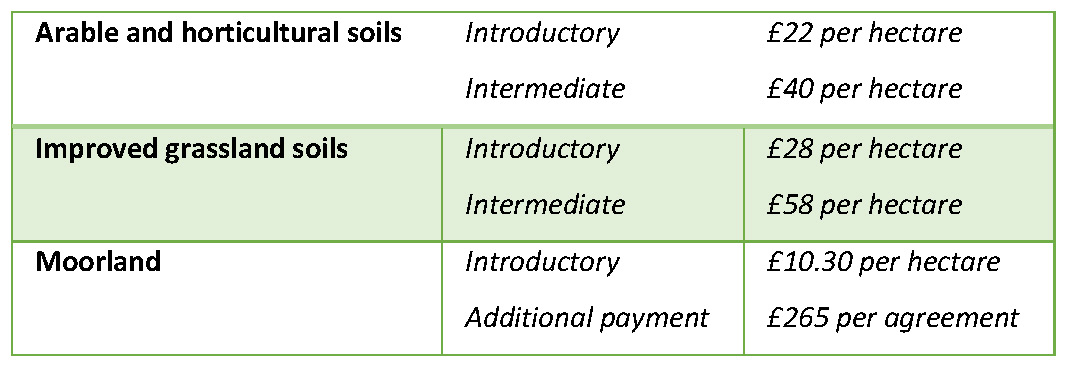SUSTAINABLE FARMING INCENTIVE 2022: APPLICATIONS OPEN FROM 30TH JUNE
DEFRA have announced the wider roll out of the Sustainable Farming Incentive (SFI) which opened for applications from Thursday 30th June.
As the Basic Payment Scheme winds down, with the last claims to be put in next year before delinkage payments from 2024, many are wondering how the replacement schemes will work in comparison. The SFI is probably going to be the most popular scheme, with DEFRA hoping that over 70% of all farmers will put their land into this scheme and it will represent the largest slice of funding allocated for Environmental Land Management.
Whilst it does not provide the same level of assistance on an area basis, this long-awaited scheme encourages the management of land in a way that may eventually improve sustainable food production whilst farming in what the Government considers to be a more environmentally sustainable fashion.
There are several key differences between this and other Agri-environment schemes, one being the absence of a specific application window. After the opening date, an applicant may apply for an SFI agreement at any time of the year. A further difference is that payment will be received on a quarterly basis, helping cashflow. Each agreement lasts 3 years, with the option to add more land or standards on a yearly basis creating a greater degree of flexibility although reducing ambition levels and hectarage is only allowed in exceptional circumstances. It will be open to any farmer who currently receives BPS payment. An SFI agreement could almost be viewed as an expansion upon Countryside Stewardship rather than something covering the loss of BPS. However, one advantage is the ability to combine SFI with a farm’s other uses of ‘Natural Capital’. Schemes involving carbon sequestration and Biodiversity Net Gain offset for example may be stacked on the same land used for SFI as long as they are not being paid for the same outcomes twice.
Standards
An agreement involves the selection of standards to apply to a specific parcel, each standard may then be classed as ‘introductory’ or ‘intermediate’ in ambition level which affects both the actions required and the payment received. There will eventually be an ‘advanced’ ambition level for each standard as is already the case in SFI Pilots. Likewise, the variety of standards will increase from the three currently available arable and horticultural soils, improved grassland soils, moorland.

There will also be an Animal Health and Welfare payment separate to the above standards. This will pay for an annual vet visit with differing payments based on livestock type. Common land will receive an additional annual payment of £6.15/ha.
The intention is for further standards to be added each year, increasing the type of land that may be involved. Whilst subject to confirmation this may include the likes of Agroforestry, Low & No Input Grassland, Farmland Biodiversity, Nutrient Management, Integrated Pest Management, Hedgerows, Organic, On-farm Woodland, Orchards & Specialist Horticulture, Heritage, Dry Stone Walls Moorland & Rough Grazing and Water Body Buffering.
At this stage there are no available capital items funding, although Countryside Stewardship capital grants may be used on land under an SFI agreement and the SFI may run on land already under BPS, Countryside Stewardship and Environmental Stewardship.
Next Steps
We would suggest reviewing which standards are best suited to each parcels. We can help explain the actions required and help update land details as required. When considering land potential, it is now more important than ever to view a holding holistically and look at how these agreements can interact with each other to make the most of your ‘Natural Capital’. Entering one type of agreement does not prohibit you from another and in many cases compliments what you are already trying to achieve.
To download/view article click here

